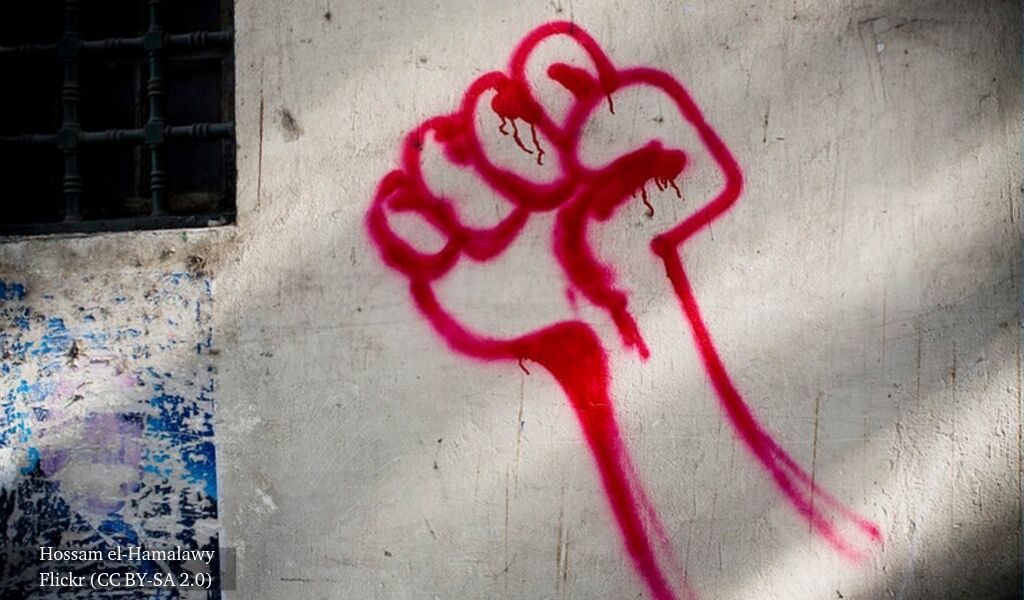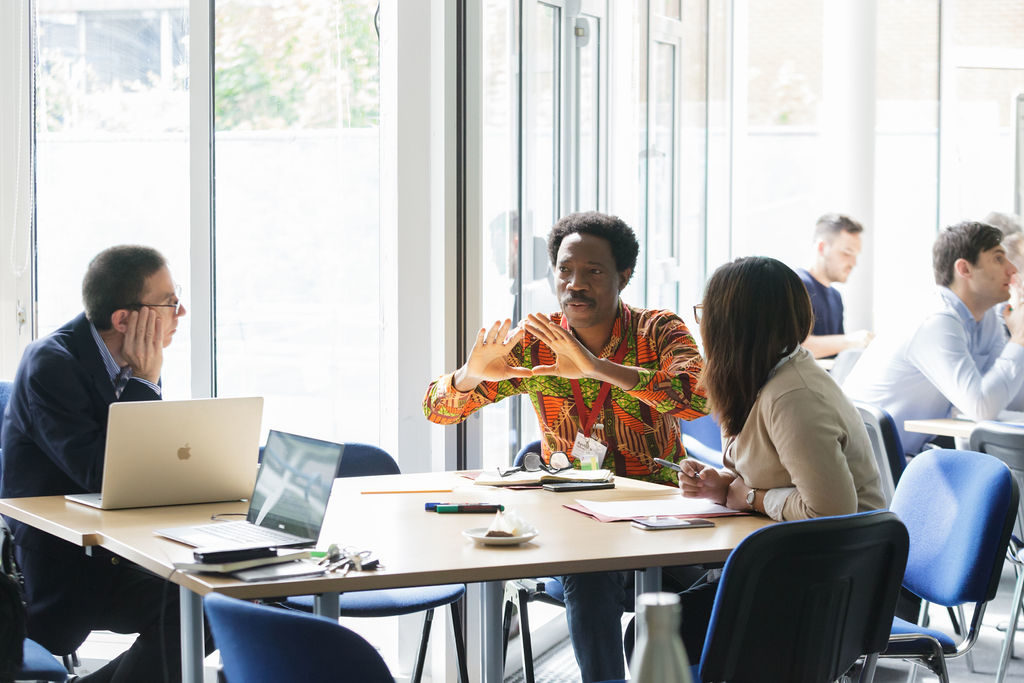Around the world, practitioners and scholars are claiming that democracy is “in crisis”. The closing of civic spaces and the rise of populist practices that question established democracies increasingly feel like challenges to our ideals of development.

These changes are something we’ve discussed throughout our last year as students in the MA Governance, Development and Public Policy, exploring their different expressions in many places.
Across Latin America, which is where we are from, there are many threats that are undermining democracy: higher rates of inequality, violence and corruption, the rise of populism in Brazil and Mexico, the consolidation of authoritarian regimes in Venezuela and Nicaragua, the breakdown of democratic institutions in Peru, and the increase of conservative movements against human rights in Brazil and Peru.
Now more than ever, it is important that development practitioners like us think outside of the box and find resilient and innovative ways to respond to these threats. If we really want to see more accountable governance (of governments and others with power and authority), we need to think about how we can generate more genuine citizen participation in how we are governed.
Evidence and experiences from Mozambique, Myanmar and Nigeria
Earlier this year our ideas on this really came together, when we supported over 60 researchers and practitioners at the Participedia Partners Conference 2019, hosted at IDS. Participedia is a global platform of scholars and activists working on democratic innovations and citizen participation.

We were particularly interested in a panel presenting emerging findings from the Action for Empowerment and Accountability (A4EA) research programme. Evidence and experiences from Mozambique, Myanmar and Nigeria, were shared as part of the discussion, which focused on how empowerment and accountability can develop in fragile, uncertain, violent and/or conflict-affected settings.
Anuradha Joshi began by setting out why understanding the processes through which empowerment and accountability in these kinds of contexts is so important for development. She argued that if we care about development, we need to look beyond the evidence on citizen action and accountability from more stable settings – particularly given estimates that by 2030 nearly four billion people will be living in places considered fragile and conflict-affected.
Dr Joshi explained that the A4EA programme illustrated many challenges for citizen participation under these conditions. Increasingly restricted civic space for accountability claims combines with fear and trauma from the long legacies of conflict. Continuously changing political configurations and actors, as well as the huge importance of informal institutions and networks, lower citizen trust and certainty in public institutions.
In spite of these challenges, we heard interesting findings from A4EA that drew attention to patterns of activism and successful citizen participation.
Mozambique
According to Alex Shankland, despite the long legacy of conflict in Mozambique, the rapid growth of the extractives sector has generated active and vibrant debate in civil society, contesting the lack of transparency and accountability around government contracts.
This is a particularly interesting case because Mozambique has been a centre of innovation around social accountability processes in the health and education sectors, which have been key spaces of negotiation between people, intermediaries, local leaders, and the state.
Myanmar
Su Sandi Myo Lwin and Colin Anderson shared their findings from looking at ‘public hearings’ organised by local civil society organisations in Kachin State in Myanmar with the support of Oxfam.
Although there was a background of a lack of mutual trust and limited experience of these kinds of civic engagement activities, they highlighted the value of spaces created where citizens and public officials could speak directly to one another, and negotiate over priorities. They emphasised the role played by project staff in coaching people to ask questions in ways that led to commitments from officials or claimed accountability, as well as the importance of ‘small wins’ in contexts like these.
Nigeria
In the case of Nigeria, Ayo Ojebode emphasised how the #BringBackOurGirls movement had to exert a challenge from the outside in order to hold the government accountable.
The strategies for participation were:
- a strong online presence when physically being outside (offline space) was risky
- ‘Polite’ marches and demonstrations, rather than more disruptive street protests
- international visibility through campaigns to ensure that messages got out
- using data as evidence to contest the official story.
Global coalitions were key to safely challenge the government because external pressure made it very difficult for them to keep silent. Through these tactics, BBOG enabled greater voice and accountability around issues of security and girls’ safety, and supported demands for more resources to tackle insecurity.
Implications for development practitioners
As development practitioners, these discussions about participation and accountability in difficult contexts gave us new ways to think about the challenges facing democracy worldwide, especially in our region. As was argued at a public event (held as part of the Participedia conference), the democratic crisis can be only cured with more democracy, that is, giving people the liberty to build their future. We shouldn’t be arguing for democracy, instead, we should be reviving it.
This stands out for us as one of the most striking lessons that we learnt during our time at IDS. Our commitment, as we return to work, is to apply it in practice and look for new ways to defend democracy and make a difference in our countries.
